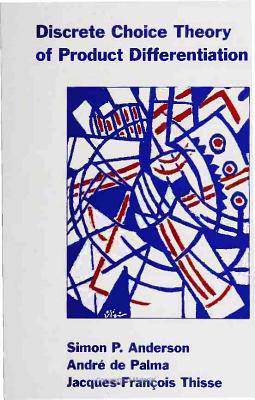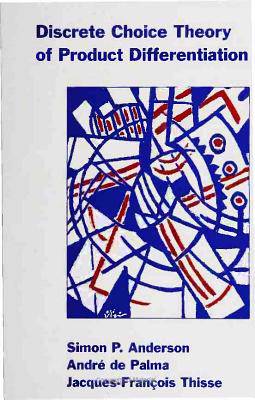
- Retrait gratuit dans votre magasin Club
- 7.000.000 titres dans notre catalogue
- Payer en toute sécurité
- Toujours un magasin près de chez vous
- Retrait gratuit dans votre magasin Club
- 7.000.0000 titres dans notre catalogue
- Payer en toute sécurité
- Toujours un magasin près de chez vous
Discrete Choice Theory of Product Differentiation
Simon P Anderson, Andre de Palma, Jacques-Francois ThisseDescription
This important study shows that an understanding of product differentiation is crucial to understanding how modern market economies function and that differentiated markets can be analyzed using discrete choice models of consumer behavior.
Product differentiation - in quality, packaging, design, color, and style - has an important impact on consumer choice. It also provides a rich source of data that has been largely unexplored because there has been no generally accepted way to model the information available. This important study shows that an understanding of product differentiation is crucial to understanding how modern market economies function and that differentiated markets can be analyzed using discrete choice models of consumer behavior. It provides a valuable synthesis of existing, often highly technical work in both differentiated markets and discrete choice models and extends this work to establish a coherent theoretical underpinning for research in imperfect competition.The discrete choice approach provides an ideal framework for describing the demands for differentiated products and can be used for studying most product differentiation models in the literature. By introducing extra dimensions of product heterogeneity, the framework also provides richer models of firm location. Discrete Choice Theory of Product Differentiation introduces students and researchers to the field, starting at the beginning and moving through to frontier research. The first four chapters detail the consumer-theoretic foundations underlying choice probability systems (including an overview of the main models used in the psychological theory of choice), while the next four chapters apply the probabilistic choice approach to oligopoly models of product differentiation, product selection, and location choice. The final chapter suggests various extensions of the models presented as well topics for further research.
Spécifications
Parties prenantes
- Auteur(s) :
- Editeur:
Contenu
- Nombre de pages :
- 448
- Langue:
- Anglais
- Collection :
Caractéristiques
- EAN:
- 9780262011280
- Date de parution :
- 16-10-92
- Format:
- Livre relié
- Format numérique:
- Genaaid
- Dimensions :
- 160 mm x 235 mm
- Poids :
- 716 g

Les avis
Nous publions uniquement les avis qui respectent les conditions requises. Consultez nos conditions pour les avis.






